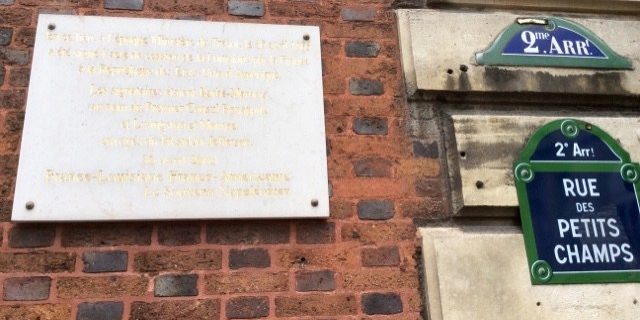It’s at rue des Petits Champs and rue Vivienne, the next block over from the White’s Hotel site, and it’s the place where James Monroe and Robert Livingston signed the Louisiana Purchase treaty on April 30th, 1803.
Jefferson had authorized them to purchase the crucially important port city of New Orleans and the area surrounding it so that U.S. trade could not be hampered by European quarrels. But when Napolean offered the entire Louisiana territory for $15 million, vastly larger than what they were prepared to purchase, Monroe and Livingston jumped at the chance, since they had also been instructed to use their best judgment. This was sort of going over Congress’s head, because though the President has the power to negotiate treaties, they don’t have the power to make land purchases, strictly speaking, and Jefferson had not received funding or the permission from Congress. For all his strict constructionism and anti-government-debt rhetoric, Jefferson at times operated more in accordance with a ‘great man theory’ of government like Theodore Roosevelt did. After all, if you have the vision and the power coupled with the proper concern for the wellbeing of your country, at times it just seems incumbent upon you to take such bold and decisive steps, even if they’re not strictly legal. And Jefferson was right: the Louisiana purchase was an opportunity like no other to increase the prestige, population, and power of the young United States, and had to be done almost regardless of the price.

